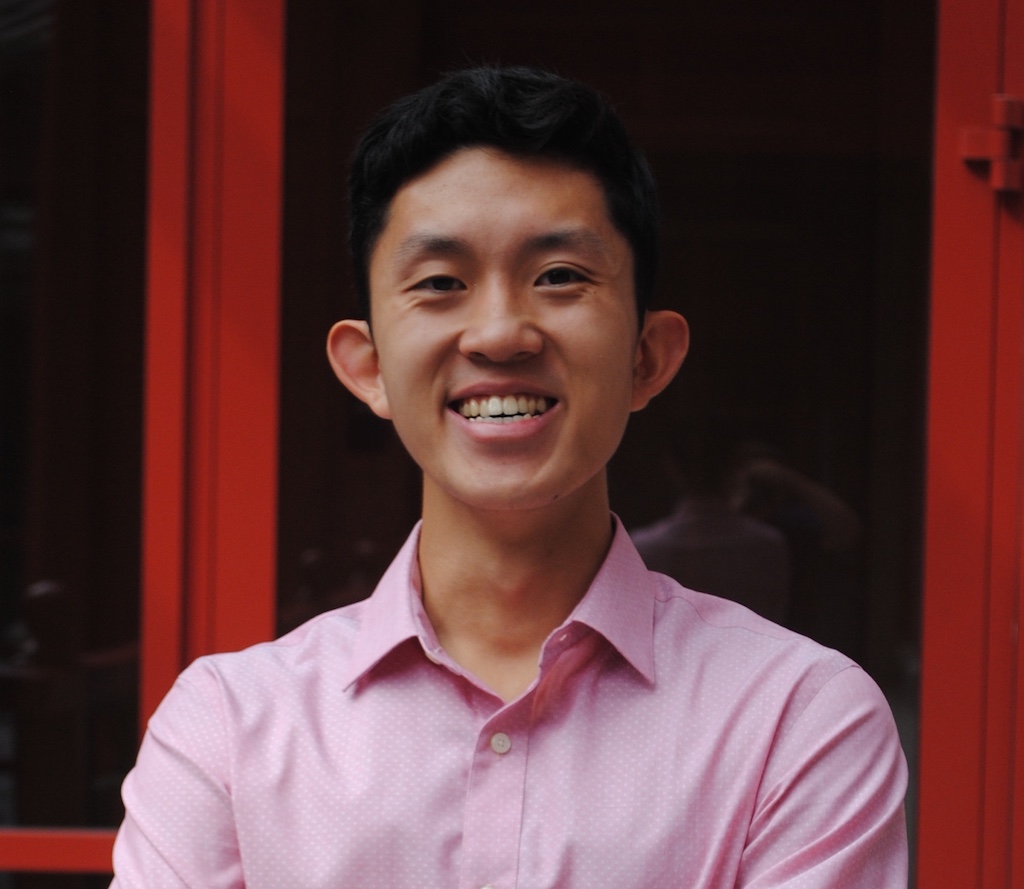SinoTech: U.S. Commerce Department Bans Sales to Fujian Jinhua
On Monday, the Commerce Department banned American companies from selling components to the Chinese chipmaker Fujian Jinhua.
Published by The Lawfare Institute
in Cooperation With

On Monday, the Commerce Department banned American companies from selling components to the Chinese chipmaker Fujian Jinhua. Jinhua is partially supported by the Fujian provincial government and makes dynamic random-access memory (DRAM) integrated circuits, which allow computers, phones and other electronic devices to run “quickly and smoothly.” In a press release, the Commerce Department cited concerns that increased Chinese production of DRAM circuits, “in light of the likely U.S.-origin technology, threatens the long term economic viability of U.S. suppliers of these essential components of U.S. military systems.” The ban will undoubtedly hurt Jinhua, which relies on chip component imports from California.
The ban also follows allegations of intellectual property theft. Last December, Idaho-based Micron Technology filed a federal lawsuit in the Northern District of California against Jinhua and a Taiwanese firm, United Microelectronics Corporation  (UMC). Micron claimed that Jinhua had partnered with UMC to poach engineers and trade secrets from Micron’s Taiwan operations. UMC purportedly offered “raises and bonuses” to defecting Micron engineers, who took with them some 900 files containing information such as product specifications. UMC and Jinhua retaliated against Micron by suing the latter company in China. In July, a Fujian court enjoined two Chinese subsidiaries of Micron from “manufacturing, selling or importing” certain DRAM modules in China.
(UMC). Micron claimed that Jinhua had partnered with UMC to poach engineers and trade secrets from Micron’s Taiwan operations. UMC purportedly offered “raises and bonuses” to defecting Micron engineers, who took with them some 900 files containing information such as product specifications. UMC and Jinhua retaliated against Micron by suing the latter company in China. In July, a Fujian court enjoined two Chinese subsidiaries of Micron from “manufacturing, selling or importing” certain DRAM modules in China.
In recent months, the Trump administration’s tariffs on semiconductor and technological materials have spurred Chinese firms to diversify their supply chains in an effort to push for “semiconductor sovereignty.” Chinese smartphone manufacturer Wingtech Technology announced on Oct. 24, for instance, that it intends to purchase a majority stake in Dutch semiconductor firm Nexperia Holding for $3.63 billion. One of the world’s largest smartphone manufacturers, Wingtech is positioning itself to enter the automotive electronics industry. By acquiring Nexperia, Wingtech would gain core competencies in producing the semiconductor components necessary for advanced electronic technologies, although the transaction will first need to clear the CFIUS review process. Other Chinese firms have invested in their own chipmaking competencies. In late September, the Alibaba Group launched a subsidiary named “Ping Tou Ge” (‘Honey Badger,’ in English) that will focus on artificial-intelligence chip development. Huawei, which released its first AI chip in 2017, unveiled two new chipsets earlier this month. At least thirteen Chinese companies are reportedly working on AI chip projects, though it should be noted that Silicon Valley and the United States at large retain significant advantages in chip production and design.
The New York Times has compared the Jinhua incident to the Commerce Department’s earlier denial order against Chinese telecommunications firm ZTE, which lasted from April to July of this year. In the case of ZTE, the Commerce Department imposed an export ban following ZTE’s violation of a settlement order regarding sanctions evasion. Both ZTE and Jinhua’s experiences highlight Chinese reliance on American chip components; ZTE was forced to shut down business operations for over a month and was nearly pushed to financial collapse.
Technology a Continuing Focal Point of Trade War
The U.S.-China trade war remains at an impasse as the Trump administration has recentered its focus on technology disputes. Last week, the Wall Street Journal reported that the Trump administration will not restart trade negotiations with Beijing until presented with a specific proposal on forced technology transfers and related issues.
In a further salvo in the trade war, the Trump administration also announced on Oct. 17 that it would begin to withdraw the United States from the Universal Postal Union (UPU). Under the UPU treaty, which lays out postal rates for mail and small packages, China and other emerging economies have historically been charged lower rates. Trump trade adviser Peter Navarro argued in a recent Financial Times op-ed that Chinese companies have exploited this rate distortion to gain “a head start in the race to win the world’s growing ecommerce business.” The United States has one year to renegotiate prior to withdrawal, during which it can seek an agreement to charge Chinese shippers higher rates.
These new measures align with a hardening stance toward China from the Trump administration. Officials are doubling down on the message articulated by Vice President Mike Pence earlier this month about the threats posed by China’s “whole-of government approach” to spreading influence, particularly in the technology sphere. In a radio interview on Oct. 26, Secretary of State Mike Pompeo stated ways that “China has taken actions that have provided risk to the American people, whether that’s a risk through the stealing of intellectual property, or trade rules that are unfair.” Assistant Secretary of State for International Security and Nonproliferation Ashley Ford highlighted the national security risks posed by technology transfers in a speech to the U.S. Naval Academy on Oct. 24. He argued that “if we … are to continue engagement with the Chinese military-technological complex in its state of ‘fusion’ with China’s civilian sector, this must be done only with due care, and in full awareness of the ambition of China’s [Military-Civilian Fusion] strategy and its geopolitical goals.” Indeed, a week after Ford’s speech, the Australian Strategic Policy Institute released a report describing efforts by China’s People’s Liberation Army to increase research collaborations with universities abroad, including in the United States.
Chinese officials have responded to the United States’ harder line with harsher rhetoric of their own. Li Zhanshu, chairman of the National People’s Congress, offered an implicit critique of the Trump administration’s “confrontational thinking” at the Beijing Xiangshan Forum, a security conference attended by 67 countries and intended to supplant the Shangri-La Dialogue. This year’s forum was widely viewed as an opportunity for the Chinese government to present a more amicable image, particularly after Beijing’s frosty reception of Secretary Pompeo earlier this month. At the meeting, Chinese Defense Minister Wei Fenghe also said that American officials’ accusations of Chinese interference in U.S. politics were “seriously damaging the Sino-U.S. relationship and mutual trust,” but focused largely on positive themes such as win-win diplomacy and security cooperation.
As bilateral relations deteriorate, companies continue to feel the trade war’s effects. In a survey conducted by the American Chamber of Commerce, nearly two-thirds of U.S. firms operating in southern China were contemplating relocating manufacturing from China to a third country; a mere 1 percent planned to return to North America. AmCham undertook the survey just after the latest round of retaliatory tariffs took effect on Sept. 24, with the United States imposing tariffs on approximately $200 billion of Chinese imports and China imposing tariffs on $60 billion of U.S. imports. Now, many will be looking toward the expected meeting in November between President Donald Trump and Chinese President Xi Jinping on the sidelines of the G-20 in Buenos Aires for any hope of a breakthrough. Should talks falter, however, reports suggest the Trump administration may introduce additional tariffs on up to $257 billion of Chinese goods in December.
In other news ...
- In other news ...Japanese Prime Minister Shinzo Abe met with President Xi last week in Beijing. Abe’s trip is the first formal visit by a Japanese leader to China in seven years. The two countries signed agreements on topics from currency swaps to maritime rescue operations. Abe also agreed to a Chinese proposal to “establish a dialogue for discussing collaboration in advanced technology.” Many of the 500 businessmen who accompanied Abe evinced an eagerness to cooperate with China in the “field of high-tech.” Abe and Xi’s agreements on free trade come at a time when both countries face “tough trade fights” with President Trump.
- President Xi presided over the opening ceremony for the Hong Kong-Zhuhai-Macau bridge on Oct. 22. Chinese authorities hope the bridge, which cost $20 billion and spans 34 miles, will create a single market within what it has termed the “Greater Bay Area” in the lower Pearl River delta. The inauguration of the bridge was the most conspicuous event on President Xi’s southern tour, during which he also visited key technological and manufacturing plants in Guangdong province and stressed that China must become “self-reliant.” This year’s southern tour marks the 40th anniversary of the beginning of the Reform and Opening Up period, an era that saw China integrate itself into the global economy.
- Executives from Amazon and hardware manufacturer Supermicro have both called on Bloomberg to retract its story alleging that Chinese spies covertly planted chips on “server motherboards headed for U.S. data centers.” In a phone interview with Buzzfeed, Apple CEO Tim Cook stated that “there is no truth in their [Bloomberg’s] story about Apple.” Tech analysts have likewise criticized as “implausible” several of the article’s descriptions. Bloomberg continues to stand by its story, and issued a statement that its investigation was the result of “more than a year of reporting” and “more than 100 interviews.”
- According to a New York Times article, American intelligence officials have determined that Chinese spies have compromised iPhones used by President Trump, and have used those capabilities to listen in on the president’s phone calls. Trump responded defiantly to the story on Twitter, writing that he only “seldom used” government cell phones. Chinese Foreign Ministry Spokeswoman Hua Chunying denied allegations that Chinese intelligence operators listen into Trump’s calls, casting the story as “fake news,” and suggesting that the president trade in his iPhone for a Chinese-made Huawei smartphone.
Commentary and Analysis
Elsewhere on Lawfare, Lyu Jinghua examines from a Chinese perspective the “more proactive and potentially escalatory” stance toward cyber defense adopted in in the 2018 Department of Defense Cyber Strategy. Ben Buchanan and Robert Williams highlight the deepening U.S.-China cybersecurity dilemma illustrated by Lyu’s article and the Pentagon’s “defend forward” approach, and Bobby Chesney offers his own response to Lyu’s argument. Nicholas Weaver argues that no matter the veracity of the Bloomberg SuperMicro story alleging Chinese tampering with motherboards, it should serve as a “wake-up call” about the need to improve supply-chain security. Also in the realm of the United States’ mounting cyber vulnerabilities, Nathan Swire analyzes a harsh new Government Accountability Office report reviewing the cyber threats facing the Department of Defense’s weapons systems, and Megan Reiss considers how Congress and the Pentagon should respond to the report. Finally, Jim Baker offers a counterintelligence view of AI in his fourth post in a series on the topic.
This week’s Cyberlaw Podcast covers accusations that China Telecom diverted internet traffic traveling through the United States and China (at 7:55) and that Russia and China have been eavesdropping on President Trump’s phone calls (at 9:50). In last week’s episode, Stewart Baker and Maury Shenk discuss the deluge of funds now pouring into Chinese tech start-ups from both Chinese and American venture capitalists (at 13:15). Baker also interviews Christopher Krebs, the undersecretary for the Department of Homeland Security’s National Protection and Programs Directorate, about election cybersecurity in advance of the midterms (at 20:05).
A new series from the Hoover Institution on “Governance in an Emerging New World,” features three essays on the Chinese technology sector: Maria Repnikova explains how Chinese authorities co-opted the internet as a tool for governance, Kai-Fu Lee and Matt Sheehan discuss China’s ascent in AI research, and Elsa Kania explores the entangled U.S.-China relationship in AI. Also in the sphere of international AI competition and collaboration, Samm Sacks, Peter Fatelnig and Jason Matheny weigh in on the state of the AI arms race at an event at the Council on Foreign Relations. In Wired, Ian Bremmer and Nicholas Thompson mull the prospect of an AI cold war and whether “the arc of the digital revolution [is] bending toward tyranny.”
Finally, a report from the European Council on Foreign Relations dives into many facets of China’s digital revolution from the social credit system to the role of the internet in economic reform.
Commentators across the political spectrum are also reassessing the strategic dimensions of U.S.-China relations. Former Australian Prime Minister Kevin Rudd poses 10 questions about the operational consequences of Washington’s new China policy in Foreign Affairs. Writing for Project Syndicate, Michael Swaine explains that the trade war is “a manifestation of a fundamental clash of systems” and that in the long term we should expect stricter regulations on technology. In a new report for Harvard’s Belfer Center, former Defense Secretary Ash Carter calls for the United States to promote a “principled, inclusive network” of Asian nations as it navigates the ups and downs of its relationship with China. In Foreign Policy, Derek Grossman considers one such network—the Quadrilateral Security Dialogue, which consists of Australia, India, Japan, and the United States—and argues that it should add a participant from ASEAN to become more effective.






